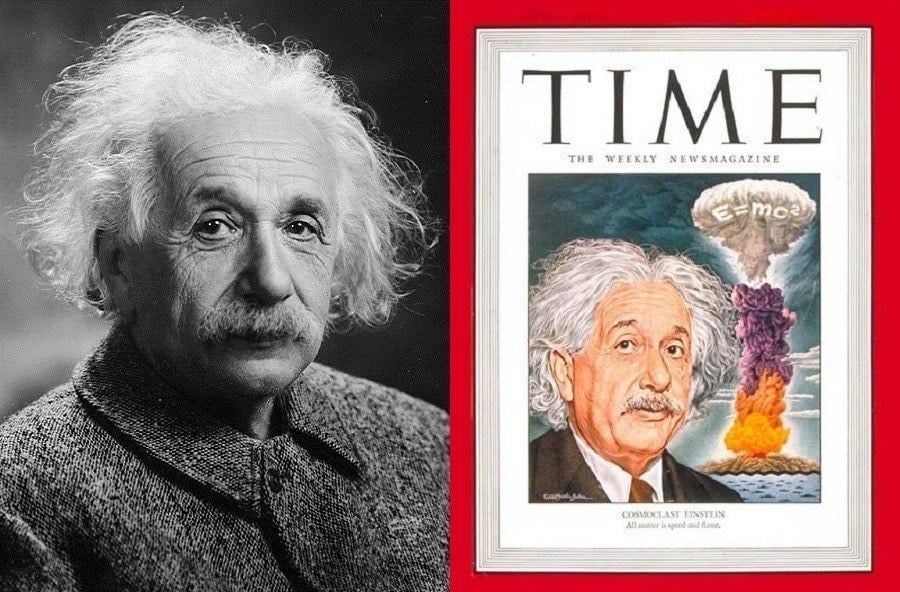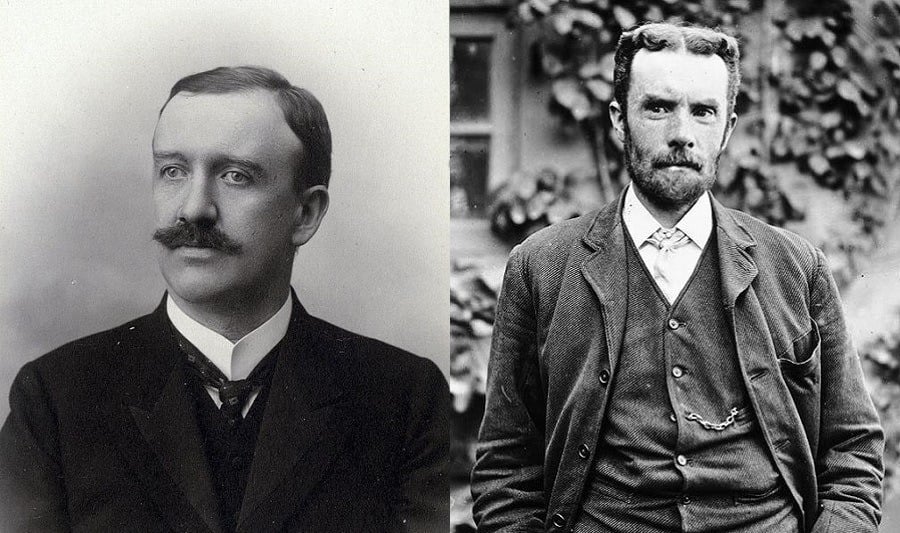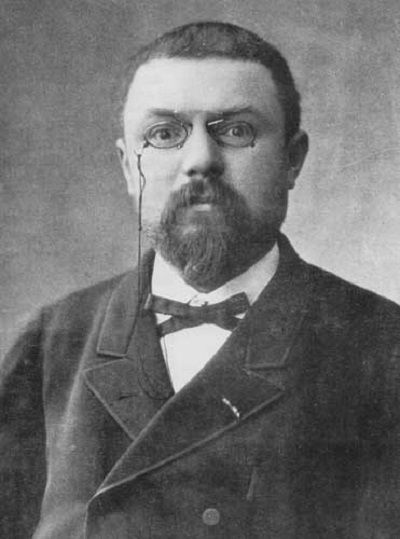Einstein Didn’t Invent E=mc2

Left: Albert Einstein. Right: TIME Magazine paces Einstein and his famous formula on its cover. Image Sources: Wikimedia Commons (left), Wikimedia Commons (right).
For anyone who’s not a physicist, the biggest blip that physics makes on your radar is when you take it in high school, then forget it. So it’s actually quite strange that everyone knows E=mc2 (and can probably tell you what those letters stand for). And everyone who thinks about E=mc2, then thinks about Albert Einstein.
There’s no reason not to. Every authoritative body and publication you could ever name gives Einstein the credit, and he did indeed publish the equation for the first time in his landmark 1905 paper Does the Inertia of a Body Depend Upon Its Energy Content?, forever laying claim to the groundbreaking idea that all mass contains a certain amount of energy relative to that mass and vice versa.
What you didn’t know about that paper was that it was merely an addendum to a paper he’d published earlier that year, making E=mc2, in the words of pre-eminent physicist Brian Greene, “the most profound afterthought in the history of science.” Nor did you know that Einstein didn’t actually prove the equation, nor did he even write E=mc2, but instead wrote it as m=E/c2.

Left: Friedrich Hasenöhrl. Right: Oliver Heaviside. Image Sources: Wikimedia Commons (left), Wikimedia Commons (right).
While that formula is 100% equal to the E=mc2 we all know, it’s helpful, when investigating who truly invented the formula, to think about it the way Einstein originally wrote it. That’s because, in its m=E/c2 form, the bones of that equation had existed for years before Einstein. Both English physicist Oliver Heaviside (in 1889) and Austrian physicist Friedrich Hasenöhrl (in 1904), building on the theories of nearly a dozen other men, had published versions of the equation that boil down to m=(4/3)E/c2.
Now, m=E/c2 obviously isn’t the same as m=(4/3)E/c2. But that latter equation, though nowhere near as famous, actually holds true under a number of conditions (such as with the mass of classical electrons), just not conditions that have anything to do with the life of the average person in an observable way.
And that’s just it. The 4/3 equation matters to physics, but not in a way that the average person can appreciate. Einstein’s version of the equation took hold because it was simple and universal, with pleasing assonance to boot. It’s probably no coincidence that the world’s favorite equation, other than that tiny little 2 at the end (which is technically an exponent), doesn’t actually have a number in it.

Henri Poincaré. Image Source: Wikimedia Commons
Moreover, in the big picture, neither physicists nor laymen are actually interested in E=mc2 for the numbers. They’re interested in the supposed groundbreaking imagination behind it, the wild, world-changing idea that mass and energy had some kind of equivalency. And that part — which really was the most important part of the equation — had been formulated by Heaviside, Hasenöhrl, and especially French physicist Henri Poincaré years before Albert Einstein.






